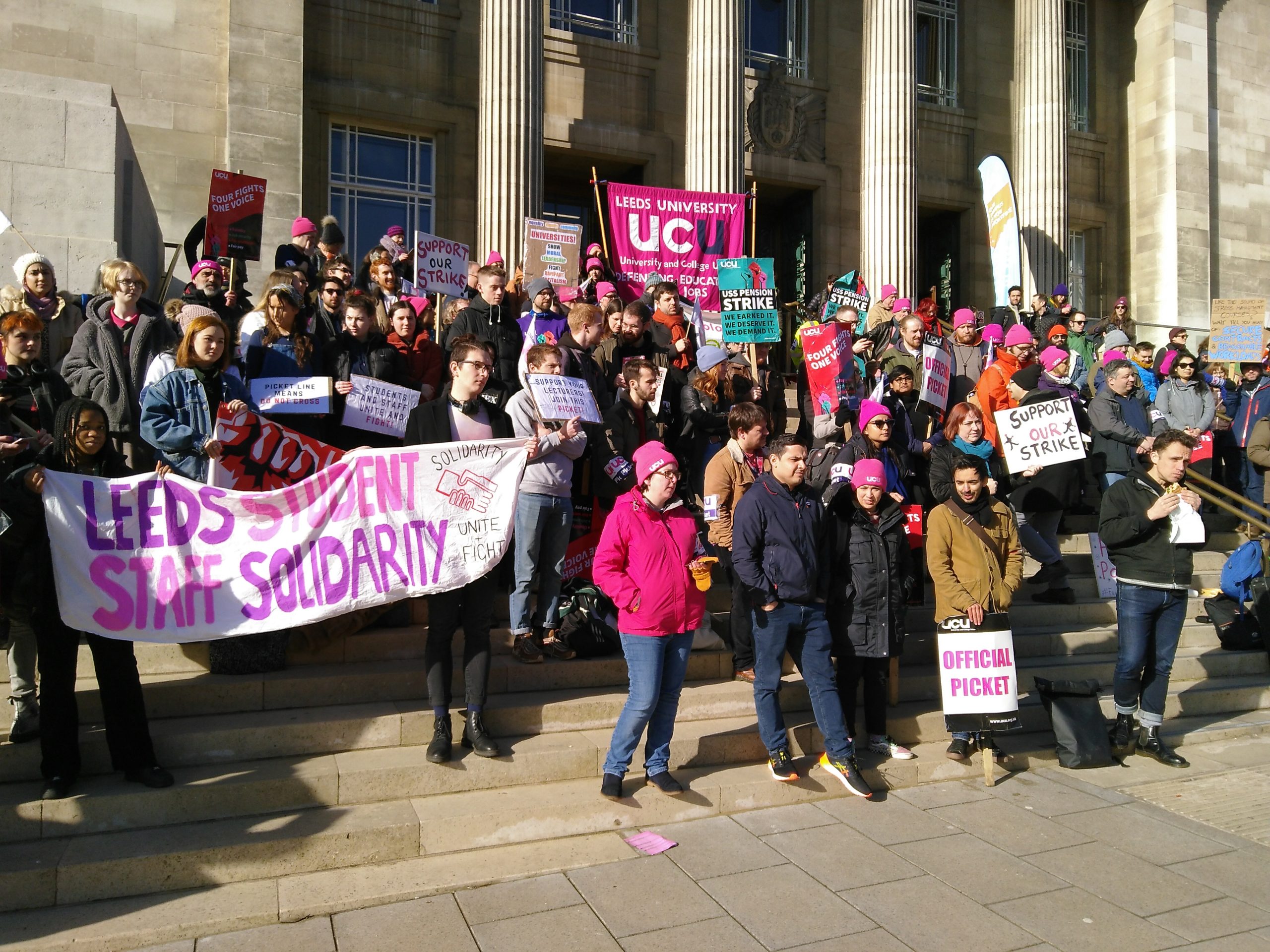University staff threaten to strike again over pay and conditions

Students could again be disrupted by strike action this semester after the University and College Union (UCU) opened a strike ballot over pay and working conditions
The ballot is the latest measure in a long-running dispute between the UCU and university employers, with staff at 152 institutions being balloted.
UCU members received ballots this week to decide whether to strike. Leeds University staff have previously taken part in strikes in 2018, 2019, and 2020.
Jo Grady, the UCU General Secretary, said: “University staff propped up the entire sector during the pandemic, but they are now being thanked with huge cuts to their pensions, unbearably high workloads, and another below-inflation pay offer – all whilst universities continue to generate a handsome income from tuition fees.
“The truth is that very well paid university leadership, who manage institutions with bigger turnovers than top football clubs, are choosing to exploit the goodwill of staff, repeatedly refusing to address the rampant use of casualised contracts, unsafe workloads or the shocking gender and ethnicity pay gap in the sector.
“Our members across the UK know that working in a university does not have to be like this and are clear that they are ready to take action to stand up for their dignity, defend pensions and win long overdue improvements to their pay and working conditions. There is still time for university chiefs to resolve a situation which is entirely of their own making, but they must return to negotiations and make credible offers.”
The National Union of Students (NUS) issued a statement in support of the staff ballot, saying “students will hold employers responsible” if employers do not come to “a negotiated settlement and address the fundamental issues repeatedly raised by staff.”
Larissa Kennedy, the NUS National President, said, “As students, we regularly witness how staff and student’s conditions are intertwined. University management forcing staff onto casualised contracts, cutting their pay, and now trying to cut thousands of pounds from their pensions cannot be divorced from the fact that one in 10 students has needed to access a foodbank to survive the pandemic – these aren’t the actions of a university leadership or an education system that have the interests of staff or students at heart.
“Staff working conditions are student learning conditions and we stand shoulder to shoulder with our educators in fighting for a more just education system. We demand fully funded, accessible, lifelong education where our spaces of teaching and learning belong to the students, staff and communities they exist to serve. Until then, it is entirely in the gift of vice chancellors and employers to come to a negotiated settlement and address the fundamental issues repeatedly raised by staff. If they don’t, students will hold employers responsible.”
On the day ballots were sent to UCU members, students received an email from setting out how the University intends to respond to the potential strike action.
The email states that if there is a strike the University will do everything it can to “minimise the impact on your education and experience.”
And although the University says it wishes to see the matter resolved quickly, and has already promised some changes including the reduction of the use of short-term contracts, it says that “the issues at the heart of the ballot are national issues” beyond their control.
The UCU is expected to make a final decision by November 8. If approved, action could take place as soon as the second half of November, though mandates are valid for six months, so action could also start later.
Leeds University Union (LUU) is calling for students to contact them to explain what the move would mean to them, what they want to know about the strikes and how students have been affected in the past.
Image: wikicommons
